The Hidden Struggle and Beauty of Studying Abroad as a Person of Color
Does the thought of traveling to a foreign country simultaneously frighten and excite you? Well, it did for me, as an Asian American student who studied abroad in the Czech Republic.
Living and learning abroad is a commonly intimidating experience for a variety of reasons, whether it's because you’re isolated from family and friends or adjusting to unfamiliar foods and faces. These changes are also an opportunity to grow and change into a better you. But how can you maintain your ethnic identity and cultural background whilst appreciating and adjusting to another?
Here are different parts of my study abroad journey in Prague taught me how to navigate through Europe as a person of color and ultimately altered my life for the better.
Fear of Change
When I told my family and friends that I got accepted to CEA CAPA’s Prague study abroad program, they all said the same thing, “There aren’t a lot of Asians over there! Don’t come back all different.” I remember laughing and responding with, “Don’t worry, don’t worry. I won’t.”
Being raised in the Bay Area, most of my friends were Asian and shared cultural similarities and resemblances in appearance. The Bay Area was my safe place, and now I was throwing myself into a city thousands of miles away with people who spoke, dressed, ate, and looked different from my “familiar.”
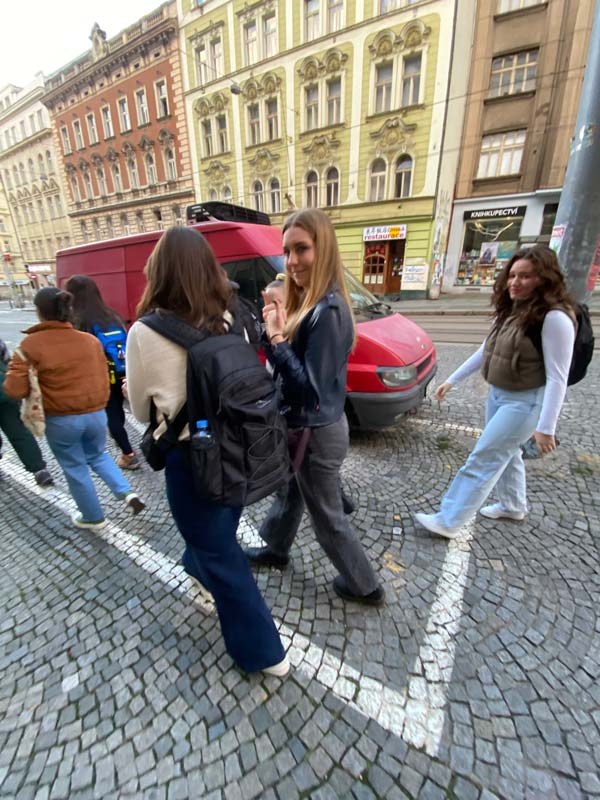
Adjusting
CEA CAPA housed me in an apartment full of other students in the study abroad program who came from all over the U.S., and even Thailand. I couldn’t help but notice immediately how different we all were when it came to style, slang, and culture.
And yet, despite these differences, I grew to love them for their big hearts, humor, and openness. We created a new safe space far from our homes. My roommates and I regularly went out together to experience the thrilling nightlife, beer gardens, exhibits, or CEA CAPA excursions. We’d sit on our balconies or windows and chat about our day.
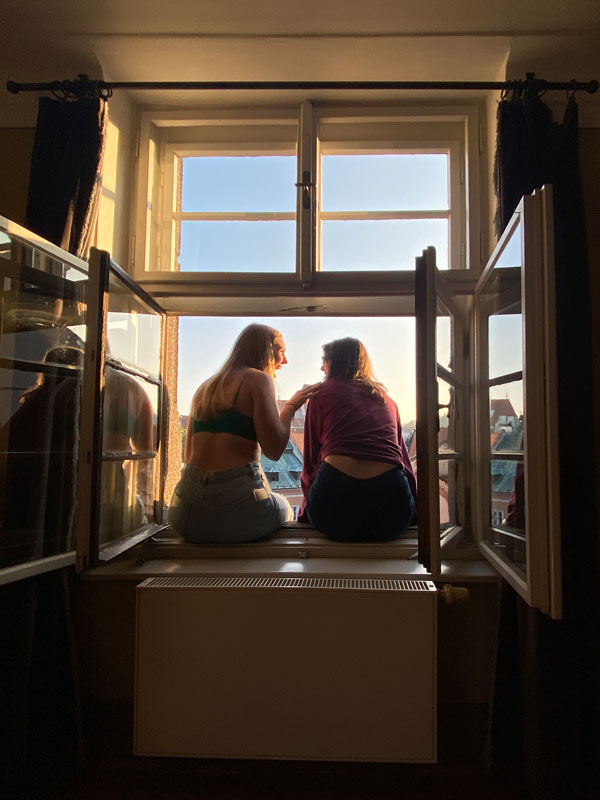
I also made friends with international students in my Anglo-American University classes. These friends had such distinctive personalities and accents. They came from Egypt, Lebanon, Sweden, you name it. Between classes, we’d sit in the park where peafowl roamed and pick crisp apples off low branches, or explore art exhibits, indie theaters, and mysterious bookstores. We’d share stories of back home. That was the beauty of being at a university abroad – everyone was from everywhere, and the diverse lifestyles and stories enriched my life, knowledge, and lens.
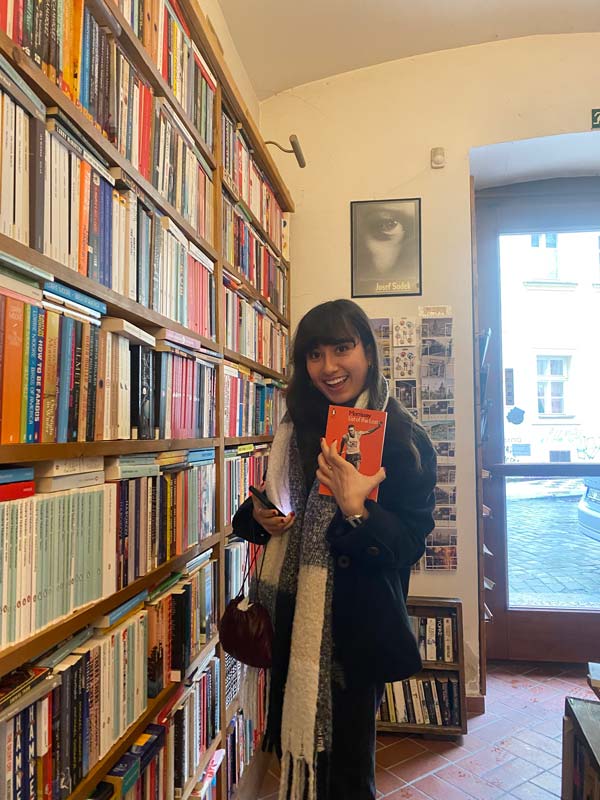
The Czech environment, however, was the biggest culture shock for me. The Czech community is homogenous, meaning most of the inhabitants are of European descent and follow unspoken rules that make Prague a safe, quiet and clean city.
Czechs tend to mind their own business and don’t smile, which makes them seem standoffish or intimidating to a foreigner. But interacting with a Czech individual would prove to you how caring and kind-hearted many of these people are. It happened more than once where someone pulled me back onto the sidewalk because I was getting too close to a passing car or tram. Rookie mistake.
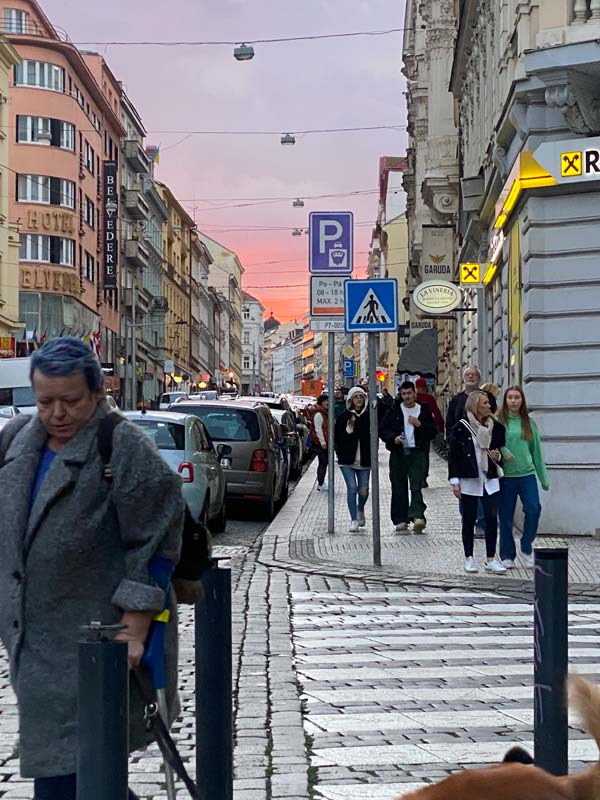
The city itself was absolutely picturesque. Every tram ride was a scenic journey through colorful historic architecture, bridges, glittering water, and streets with intricate cobblestone designs. Prague looked nothing like the suburban (or urban) streets of northern California, but that only added to the city’s charm and mystique.
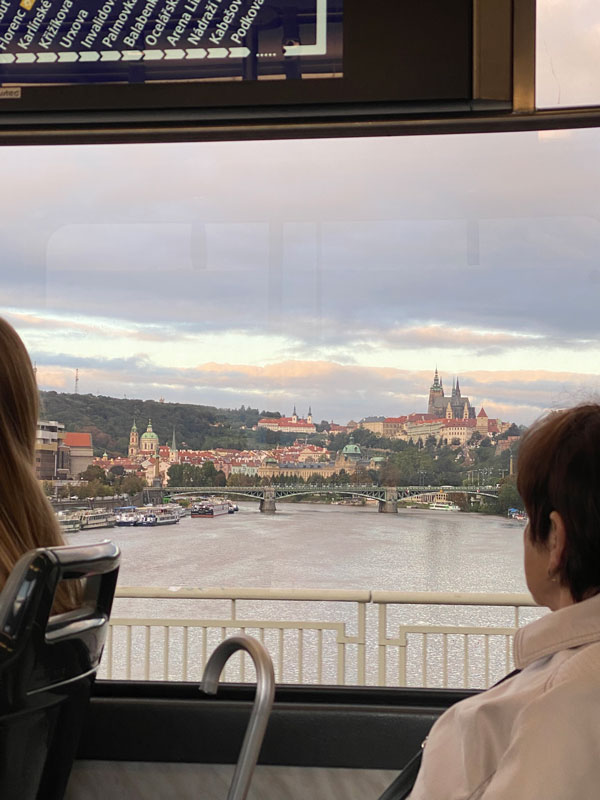
When Identities Conflict
One night, a friend of an apartment mate was visiting for the weekend. On the way to a bar, the friend climbed on the tram handrails and did back flips like they were monkey bars.
The people on the tram looked away, while some smiled. I laughed along with my friends but worried we had broken the unspoken tram etiquette in Prague. Were we perpetuating the stereotype that Americans were “loud” and “rowdy?” I recalled that CEA CAPA staff emphasized the importance of “global citizenship” and respecting Prague’s customs.
Another time, my roommates and I visited a beer garden at sunset and ran into some Europeans staying in a hostel nearby. We asked them what they thought of Americans, and one of the girls retorted: “Americans can be fake,” implying that the things we said or did were sometimes inauthentic. My roommates and I laughed politely in response.
My ethnicity also spurred intrigue. I didn’t notice curious stares in Prague, but traveling outside of the country, it was a more common occurrence. During Oktoberfest in Munich, a Spanish-speaking man walking past nudged his friend and whispered “Oh, la china?” The unwanted attention would make me uncomfortable at times.
Once, a girl in a Milan hostel bathroom turned to me mid-floss and said, “I have to ask. You’re Japanese? I’ve always wanted to meet a Japanese.”
I like to give these people the benefit of the doubt. Sometimes they’re genuinely curious and don’t realize that their intrigue can come across as insensitive. It’s an opportunity for me to educate them, if necessary.
How did your identity impact your study abroad experience? Share in the comments!












